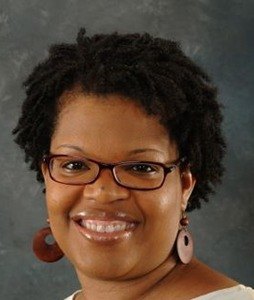Popular blogger and author Rachel Held Evans interviews Dr. Chanequa Walker-Barnes, assistant professor of Pastoral Care and Counseling, about her new book, Too Heavy a Yoke: Black Women and The Burden of Strength.
Click here to read the full interview
Excerpt from the Interview
I think a lot of Christian women, myself included, tend to internalize Christian teachings about self-sacrifice in ways that are unhealthy. You argue that a better understanding of the Trinity can help women see mutual self-giving, rather than self-denial and self-sacrifice, as the paradigm for Christian love. How is that?
Christian tradition has long held that humanity's primary sin is pride. So we are constantly being admonished to relinquish our pride and to empty ourselves on behalf of others. “No cross, no crown” is the way we often hear it. But for many—perhaps most—women, our fundamental problem is not that we have too high a view of ourselves; it's that we have too low a view. We do not view and love ourselves as fearfully and wonderfully made in the image of the Divine. Our issue is not that we need to empty ourselves of pride and learn to deny ourselves. Most women – regardless of race – master that pretty early in life. Our problem tends to be giving of ourselves to the point where there is no self left, to the point that we don't even realize who we are and who we are called to be.
The beauty of the Trinity, though, is that it gives us a different model of relating to one another. In the Trinity, we have three beings who fully contain and are fully contained by each other without being diminished by one another. The Father, Son, and Holy Spirit are one and yet they are also unique. It's a mystery that we may never fully understand, but it points us to the idea that being in relationship with one another is not about sacrificing ourselves to the point of losing our identities. It's about being interdependent in a way that our identities are supported and reinforced by our relationships.
It's rare to find a book that so seamlessly combines the academic and the pastoral, butToo Heavy a Yokedoes this beautifully. Who do you especially hope will read it and why?
I am continually struck by the fact that there is little public discourse – in the church or anywhere – about the health epidemic facing Black women and it's connection to the myth of the StrongBlackWoman. I wanted to write a book that would raise the awareness of spiritual care professionals, to help them to see the realities of Black women's lives so that they could better minister to them. I want this book to be read by pastors, pastoral counselors, chaplains, and leaders of lay ministries. I hope, too, that it will extend beyond the church to health care professionals. And I even hope that it will find its way into the hands of Black women who are weighed down by the burden of strength.
At the same time, I didn't want this to be pop psychology. I am a professor, after all, so I wanted the book to be academically rigorous. My aim was to write the main body of the text so that it could be read by a wide array of people, sort of in the manner of bell hooks. I tried to keep the professional jargon to the footnotes.
About the Book
Black women are strong. At least that's what everyone says and how they are constantly depicted. But what, exactly, does this strength entail? And what price do Black women pay for it? InToo Heavy a Yoke, Chanequa Walker-Barnes examines the burdensome yoke that the ideology of the StrongBlackWoman places upon African American women.
She demonstrates how the three core features of the ideology — emotional strength, caregiving, and independence — constrain the lives of African American women and predispose them to physical and emotional health problems, including obesity, diabetes, hypertension, and anxiety. She traces the historical, social, and theological influences that resulted in the evolution and maintenance of the StrongBlackWoman, including the Christian church, R&B and hip-hop artists, and popular television and film.
Drawing upon womanist pastoral theology and twelve-step philosophy, she calls upon pastoral caregivers to aid in the healing of African American women's identities and crafts a twelve-step program for StrongBlackWomen in recovery.
About Chanequa Walker-Barnes
Dr. Chanequa Walker-Barnes is a theologian and psychologist whose mission is to serve as a catalyst for healing, justice, and reconciliation in the Christian church and beyond. Dr. Walker-Barnes has earned degrees from Emory University (B.A., Psychology and African-American/African Studies), the University of Miami (M.S. and Ph.D., Clinical Child/Family Psychology), and Duke University (M.Div., Certificate in Gender, Theology, and Ministry). She is currently Assistant Professor of Pastoral Care and Counseling in the McAfee School of Theology at Mercer University. Prior to coming to McAfee, Dr. Walker-Barnes served on the faculty at Shaw University Divinity School, the University of North Carolina at Chapel Hill, and the University of Florida. A candidate for ordination in the North Georgia Conference of the United Methodist Church, she is licensed to practice psychology in Georgia and North Carolina.










